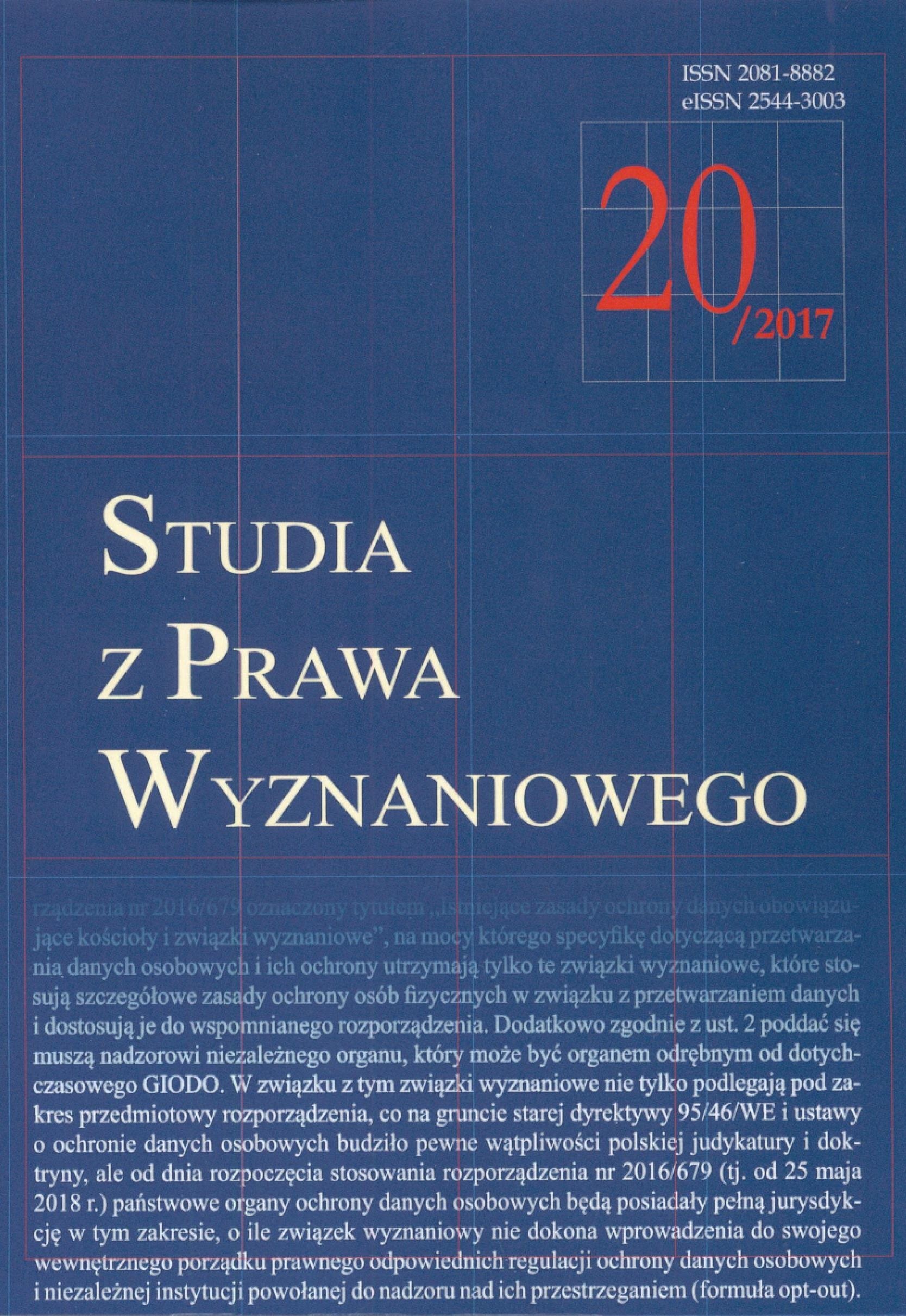Konstytucyjna zasada oddzielenia państwa od kościoła w działalności Wydziału do Spraw Wyznań Urzędu Wojewódzkiego w Krośnie wobec Kościoła Katolickiego
The constitutional principle of separation of church and state in the operation of the Department of Religious Affairs in the Voivodeship office in Krosno against the Catholic Church
Author(s): Konrad DydaSubject(s): Politics / Political Sciences, Law, Constitution, Jurisprudence, History of Law, Constitutional Law, Human Rights and Humanitarian Law, Governance, Public Administration, Public Law, Local History / Microhistory, Political history, Social history, Recent History (1900 till today), Theology and Religion
Published by: Katolicki Uniwersytet Lubelski Jana Pawła II - Wydział Prawa, Prawa Kanonicznego i Administracji
Keywords: the Polish People’s Republic; the Department for Religious Affairs; the separation of Church and State; sacred architecture; State–Church relations
Summary/Abstract: The subject matter of this article is the analysis of the action of the Department for Religious Affairs in Krosno against the Catholic Church in the light of the constitutional principle about Church and State separation. The Constitution of the Polish People’s Republic of 22 July 1952 set forth the separation of Church and State (Art. 70, para. 2) and stipulated that the Church can freely carry out its religious functions (Art. 70, para. 1). This provision applied also to other religious associations. Under the constitutional law at that time, this freedom was understood as the freedom to proclaim doctrine, organize religious assemblies, provide ministry and teaching, establish religious orders, and maintain contacts with the believers abroad. The law was used to discriminate against the Church, which became a kind of standard. For example, legal measures, especially penal and administrative sanctions, were employed to block and restrict the construction of buildings used for religious purposes. The constitutional principle concerning Church and State separation was understood by the Department of Religious Affairs in Krosno as a total secularization of social life. For example, it was used to justify taking actions against the development of buildings used for religious purposes or against any pastoral activities undertaken by the Catholic clergy, especially concerning the youth ministry.
Journal: Studia z Prawa Wyznaniowego
- Issue Year: 2017
- Issue No: 20
- Page Range: 335-372
- Page Count: 38
- Language: Polish

